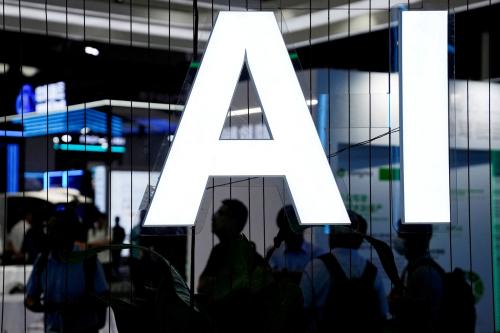

8:30 am EST - 9:30 am EST
Past Event
Amid growing strategic competition between the United States and China, artificial intelligence (AI) has emerged as a key factor shaping global power dynamics. As bilateral relations become increasingly strained between these two major superpowers, ongoing dialogue around critical technological and national security issues is necessary to reduce miscommunication. Over the past five years, the Brookings Institution and Tsinghua University have convened an unofficial U.S.-China Track II dialogue on AI in national security. This collaboration has yielded significant contributions, including parallel glossaries of AI terms and agreements to emphasize the importance of maintaining human control over nuclear decisionmaking. What lessons can be drawn from sustained dialogue, and how can it inform how the United States and China will relate to each other in this vital area?
On Friday, January 10, the John L. Thornton China Center at Brookings and the Center for International Security and Strategy at Tsinghua University hosted a panel of U.S. and Chinese experts to analyze how AI will influence national security issues facing both countries.
Viewers submitted questions by emailing [email protected] and via Twitter @BrookingsFP using #USChina.
8:30 am - 8:40 am

8:40 am - 9:30 am


Moderator


R. David Edelman, Diana Fu, Ryan Hass, Patricia M. Kim, Ying Lin, Yingyi Ma, Michael E. O’Hanlon, Melanie W. Sisson, Elham Tabassi, Nicol Turner Lee
June 18, 2025

Mark MacCarthy
June 12, 2025

Jacob Taylor, Kershlin Krishna
June 11, 2025